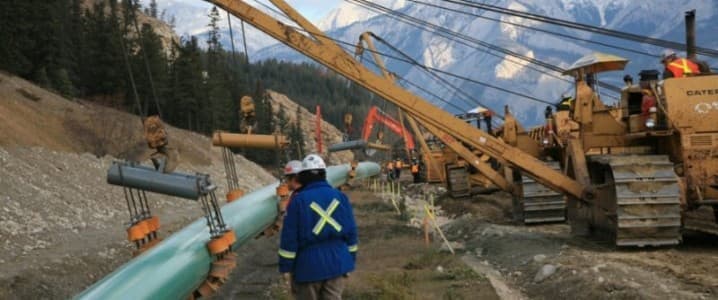Canada's Oil Boom: A Game-Changer in Global Markets Amid Climate Debate!

Imagine a world where Canada, long hampered by pipeline shortages, suddenly emerges as a heavyweight player in the global oil market. That’s exactly what happened when the Trans Mountain Expansion project finally came online on May 1, 2024, transforming the country’s energy landscape overnight.
For years, Canada’s oil and gas sector faced a grim reality, struggling with limited pipeline capacity that forced producers to sell their resources at discounted rates. The lack of infrastructure cost Canadian producers an astonishing $20.62 billion annually by 2019, as storage facilities were pushed to their limits. But with the launch of the Trans Mountain Expansion, everything changed.
This groundbreaking project has empowered oil producers in Alberta to triple their crude oil shipments to the Pacific coast, unlocking a staggering 600,000 barrels per day of new market access. Suddenly, Canada is not just participating in the global oil conversation; it’s driving it!
But what’s even more thrilling? The Baltic Exchange, a titan in maritime market data, has rolled out two new benchmarks specifically for tracking Canadian crude exports to Asia. These benchmarks now allow traders and analysts to monitor oil shipments from Vancouver to strategic ports, including Ningbo, China, through Aframax tanker benchmarks TD28 and TD29. This is a pivotal shift, marking a new era in Canada’s oil export capabilities.
“This is a classic example of the Baltic responding directly to market needs,” stated Matt Cox, Head of Benchmark Production at the Baltic Exchange, highlighting how this development aligns with the shifting sands of global geopolitics. The evolving trade dynamics between China, the largest fossil fuel importer, and the United States, a leading exporter, are reshaping the landscape. With ongoing tariff disputes and retaliatory measures, Canada stands to benefit significantly.
As the U.S. faces trade tensions with China, Canadian oil is stepping into the breach. In a recent report, Bloomberg proclaimed, “China’s appetite for Canadian oil is headed for an all-time high.” Over 70% of oil tankers leaving British Columbia are now bound for China, reflecting a blossoming partnership as both nations navigate their respective energy needs.
However, this newfound dominance isn't without controversy. With Prime Minister Mark Carney at the helm, Canada is grappling with a divided stance on climate issues. As he accelerates the country’s involvement in global oil markets, he also faces the challenge of honoring Canada's climate commitments. Carney assures, “We are not abandoning our climate goals; we are recalibrating our tools to support Canadian families during this economic moment.”
With the stakes this high, Canada finds itself at a crossroads, balancing economic growth with environmental responsibility. The global energy stage is set, and it will be fascinating to see how Canada navigates this dual challenge in the months ahead.

























